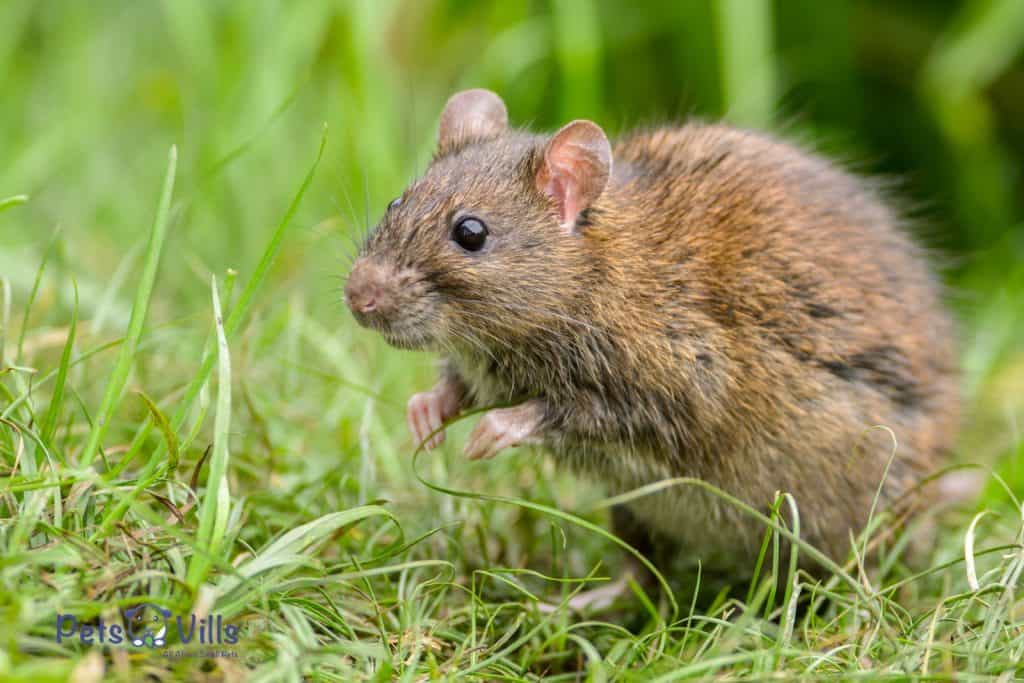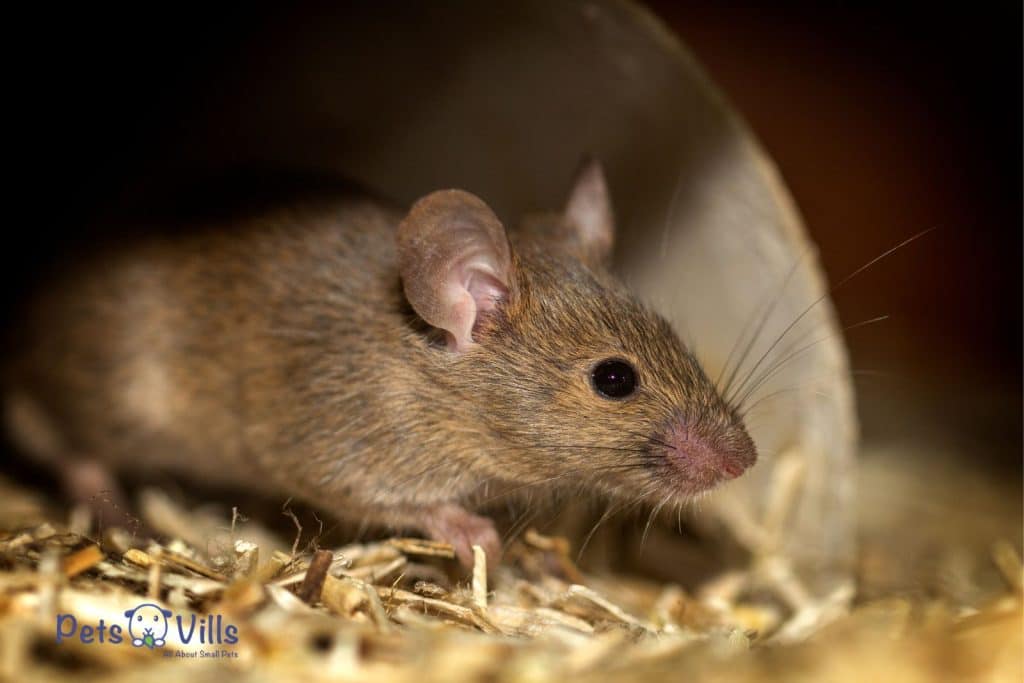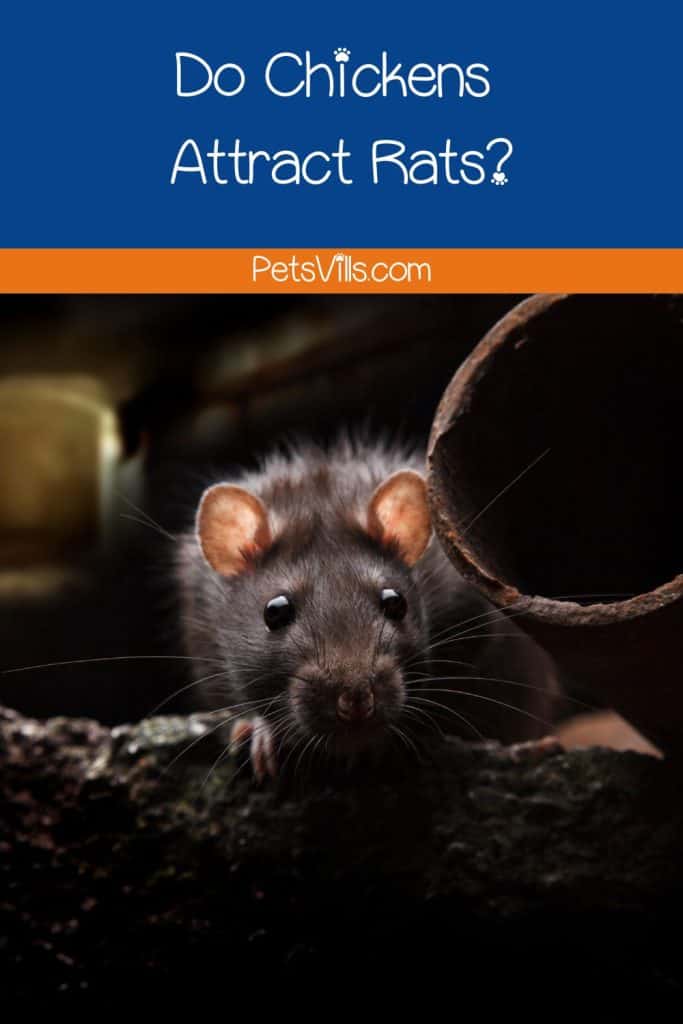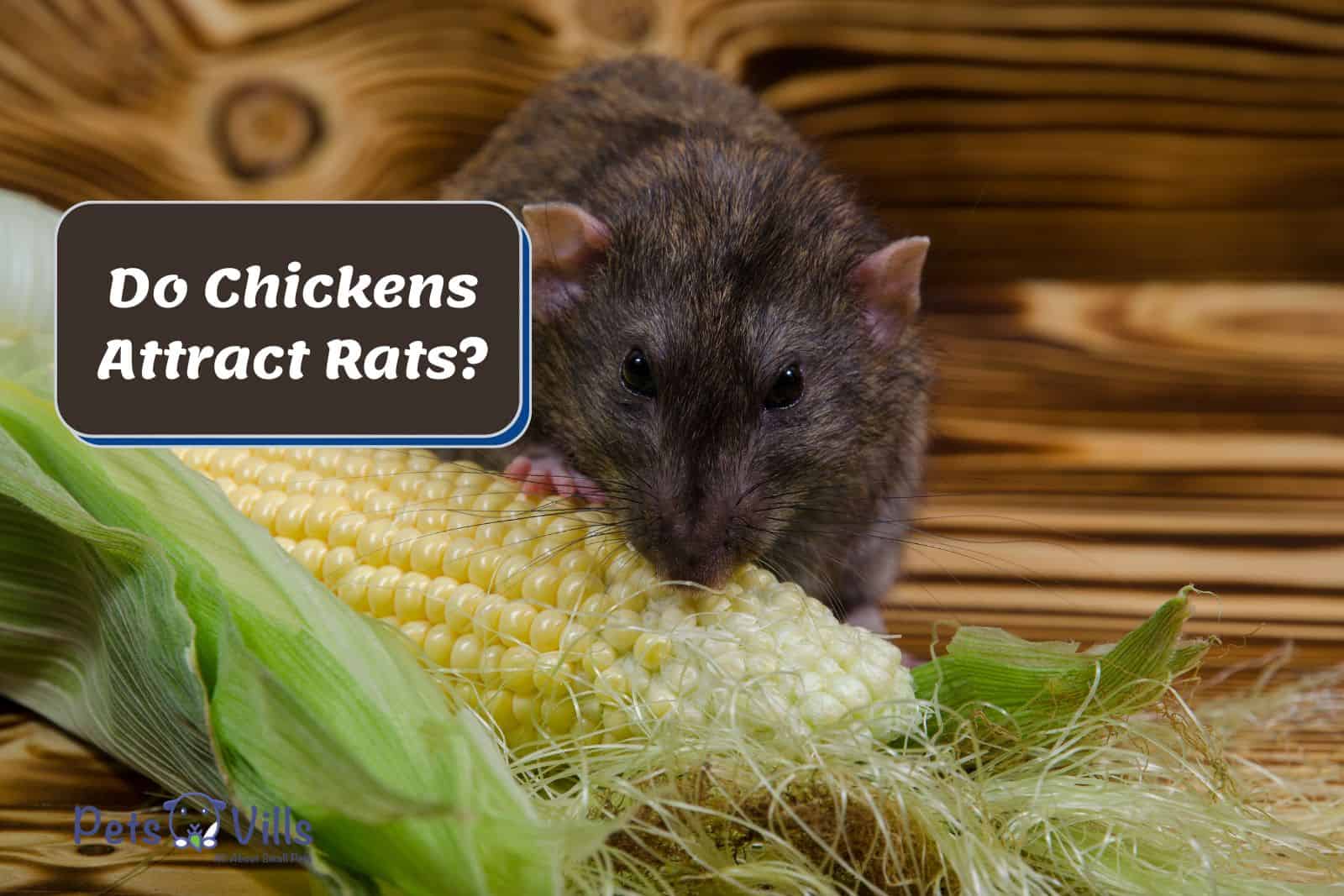If you have a flock of chickens, there’s a constant worry about them attracting large animals. But what about problematic smaller animals like rats?
Do chickens attract rats? According to experts, they do attract rats through their droppings or leftover feed, and their presence can cause serious issues (1).
But there’s no need to worry; there are effective preventative measures.
So read on, and I’ll ensure you’re ready to tackle this problem without any issues.
Table of Contents
Key Takeaways
- Chickens don’t attract rats by themselves. Rats are attracted to the droppings and leftover feed inside a chicken’s environment.
- Rats represent a massive issue because they carry diseases, eat eggs, and will kill young chickens.
- Several signs indicated a rat problem, including chewing damage, holes in the ground, unaccounted-for chicken feed, and missing chicken eggs.
- Preventing rats from entering a chicken coop requires regular cleaning, using airtight storage containers for feed, and setting up the stronger chicken wire.
Why Are Rats a Problem?
Generally, rats won’t cause problems when around the chicken coop. These pesky rodents will simply eat the leftovers and chicken droppings.

At first, some poultry owners may even welcome them since they keep this area clean. But things can turn problematic quickly when it becomes a large group of rats.
It will eventually become a large group, too. These creatures are known for their preference for living in large groups and hunting together.
So once they make their way into the chicken coop, they will eat everything and anything edible. It’ll become more of a rats’ home rather than your chickens.
In this situation, several issues can arise. Below is a couple of them to show you why rats are a problem for chickens:
#1 Carry Diseases
Rats are known more than anything for carrying various diseases. Unfortunately, some of these illnesses and conditions are particularly deadly for chickens.
Of course, it doesn’t help that wild rats can transmit these diseases directly or indirectly. It makes having them around a chicken house incredibly problematic.
The directly transmitted diseases include leptospirosis, lymphocytic choriomeningitis (LCMV), Tularemia, and Salmonella (2). None are anything you want around your flock.
Meanwhile, the indirectly transmitted diseases aren’t any friendlier. These include Lyme disease, Murine typhus, Colorado tick fever, Scrub Typus, and much more (2).
Overall, poultry owners are asking for their flock to get sick if they allow rats to hang around the coop. It’s much better to do whatever you can to eliminate them.
#2 Eat Eggs
Aside from carrying illnesses, rats are a significant risk to your eggs. This is because chicken eggs are a favorite food for these rodents.
They will go out of their way to steal and eat them. It can cost you a significant portion of your eggs if they’re left unchecked.
It also doesn’t help that they’re very stealthy about getting them. I’ve even seen them steal eggs right from under hens without them noticing.
#3 Kill Young Chickens
Rats are omnivores, which means they will eat both plants and animals. So it shouldn’t be shocking to learn that they may consider baby/juvenile chickens a tasty food source.
The good news is rats won’t attack and eat them under normal circumstances. Instead, they’ll rely on other food sources when the number of rats is small.
However, once the numbers get larger and food is scarce, rats get more desperate. Those baby or juvenile chickens begin to look much more enticing.
If they attack, rats usually kill their prey by biting the head and neck. This method is bad news as rats have powerful jaws that can kill a baby chicken quickly.
Another issue is these attacks often go unnoticed within chicken coops. Rats are smart enough to attack at night to help them escape without any problems.
5 Signs You Have Rats
You now understand what problems stem from having rats. But how does a poultry owner know if they have a rat problem?

If you notice these five signs, it’s time to think about how to deal with them.
#1 Chewing Damage
Rats are blessed with an outrageous chewing capacity. Their strong jaws will chew through wood or plastic around your chicken coop area.
It’s almost unfair to them as it requires little effort. So anyone who expects they have rats around their coops should inspect the cool for chewing damages.
In most cases, the chewed-off areas will be localized to dark places. Rats will do whatever it takes to remain undetected, meaning those areas are prime targets.
A few common examples include the coop’s underside and corners. It’s where rats got in when I had rat issues with my flock of backyard chickens.
Another thing to understand is rats are agile creatures. Due to this, they don’t need much room or large holes to crawl in or out of around your coop.
On the contrary, they’re known for their incredible ability to fit through tight spots. Therefore, a small crack in the coop or run may be more than enough.
It could be what’s been their access point this entire time. Honestly, it can be frustrating if these rats are left unchecked for a long time.
#2 Hole In The Ground
Rats are excellent burrowers and can burrow themselves anywhere (3). Therefore, it can create a severe issue for poultry owners with chicken coops.
It’s a common issue to have rats burrow holes under the coop and in the run. You shouldn’t have trouble finding them, either, as they’re often 2-4 inches in diameter.
Some rats will get very ambitious and burrow right under the coop. It often occurs when there’s an abundance of food available.
It makes sense since rats are savvy and will try to make homes near food sources. The placement will allow them to thrive in a way nobody wants to experience.
So what do you do if you notice a hole in the ground? Well, I wish it was as easy as covering it with dirt.
Unfortunately, it’s more complicated. Your neighborhood rat will adapt by digging their way past or an entirely new route.
Your only option is digging up the length of their entire burrow to see where it starts. Once you do, cover the whole route to prevent them from burrowing into the coop again.
As you can imagine, it is a ton of work. But it’s necessary to prevent and stop these rodents from invading your coop.
#3 Missing Chicken Feed
The amount of chicken feed inside your coop can indicate a rat issue. So it’s vital to know how much your chickens will eat per day.
A single adult chicken consumes an average of a quarter pound of feed daily. However, this depends on the season.
In the summer, chickens will consume less and eat more in winter. It’s a trait to ensure they can handle harsher, colder environments.
So let’s say; you have 20 average-size chickens, and you’re feeding them more than 100 pounds of feeds each week. So it’s clear that there’s something else eating the meals.
Unlike chickens, rats will eat every bit and piece of the chicken feed. It’ll make it difficult to pinpoint exactly where they’re located and track them down.
But I’ll discuss more preventative methods in our next section. I’ll ensure you can take them down and get your coop back running smoothly.
#4 Missing Chicken Eggs
One of the rat’s favorite food is chicken eggs. So if they see an opportunity, they will eat them without hesitation.
Sometimes, the rats even steal an egg from under the hen. They’re much craftier than most people would expect.
You’ll notice this issue if you get fewer eggs or the count is off. On these occasions, rats are often the culprit for lackluster egg production.
Sadly, I wasn’t ready for how clever they were when dealing with my issue. It almost seemed too easy for them to steal these eggs from my hens.
#5 Rat Droppings
Rat droppings inside or around the coop are a telltale sign. You may notice them by stepping on them or through your sense of smell.
Either way, rat droppings aren’t what any poultry owner wants to see. It means the time has come to do something drastic to eliminate these rodents.
Hold on to your feathers because my intriguing articles on “Can Chickens Freeze to Death?” and “Do Chickens Fart?” are feather-raising must-read that will leave you gobbling up every word!
How To Keep Rats Out of the Chicken Coop and Run
If you’ve identified a rat problem, the steps for keeping them out aren’t too tricky. Anyone who follows these tips should find themselves rat-free sooner rather than later.
#1 Proper Storage of Chicken Feeds
Most chicken feeds are packaged using nylon materials. I wonder why they use this method, as it’s an easy target for rats.
A hungry rat will have no trouble chewing through them. In fact, they will do with absolute ease while you end up having to buy more chicken feed.
It also isn’t made more secure by this packaging having breathable holes. Manufacturers use these holes to prevent moisture buildups.
But they fail to realize rats have an excellent sense of smell. So these breathable holes allow them to detect the chicken feed, even in total darkness.
Overall, the original container may be excellent for storing chicken feeds, but it’s horrible for keeping out rats. I bypass these issues by placing the feed in a plastic, airtight container.
These containers are challenging for rats to chew and get into the feed. If you want total security, a metal container made from tins is the best bet.
After all, tin is too tricky for rats to chew through, and they will not attempt to either. So you’ll have no problem keeping your chicken feeds safe from these pesky rodents.
#2 Timely Cleaning
Keeping your coop and run clean at all times is the easiest way to keep rats away. Rats will only come into these areas if there are droppings or leftover feeds.
In some cases, it becomes a simple matter of staying up-to-date with routine cleaning. It’s often enough to draw rats’ interest away from your chicken coop and run.
As for how much cleaning, these areas need daily attention. It’s the only way to ensure these rodents don’t come back and make your life miserable again.
Furthermore, a clean coop and run will benefit your flock’s overall health. It keeps them from breathing in the odor of rotting feeds and their droppings.
It’ll also keep them from interacting with disease-carrying rats. Sometimes, it’s really as simple as keeping an area clean to remove these problems.
#3 Correct Fencing
You may already have chicken wire as a fence around the entire coop and run. But this material is only great for keeping chickens from getting through it.
Rats are an entirely different story. These creatures are incredibly agile and can “squeeze through the holes” in chicken wire (1).
I’d suggest using a quarter-inch or half-inch hardware cloth to solve this issue. It’s the perfect chicken run material to prevent any rodent intruders.
My rat issues have never come back after purchasing this wire. On the contrary, it’s been everything I could’ve hoped for when setting it up around my coop.
Check out this video for additional tips:
FAQs
#1 Do rats come out during the day?
Generally, rats are nocturnal and won’t come out during the day. But they become more likely to when becoming more accustomed to humans.
#2 What pests do chickens attract?
Chickens are known to attract mice and insects. These two pests are attracted to your chicken’s leftover feed and dropping, similar to rats.
Conclusion
Do chickens attract rats? No, they don’t but their leftover feed and droppings inside the coop/run can certainly attract them.
So you should do whatever they can do to keep those areas clean. If you do, rats won’t be a problem.

Resources
1. University US. Is There a Correlation Between Rodents and Backyard Chickens? [Internet]. extension.usu.edu. [cited 2023 Feb 13]. Available from: https://extension.usu.edu/news_sections/agriculture_and_natural_resources/rodent-chicken
2. CDC. Diseases indirectly transmitted by rodents | Rodents | CDC [Internet]. www.cdc.gov. 2019. Available from: https://www.cdc.gov/rodents/diseases/indirect.html
3. Species Specific Information: Rat [Internet]. web.jhu.edu. Available from: https://web.jhu.edu/animalcare/procedures/rat.html
Alina Hartley is a small-town girl with a ginormous love of bearded dragons. It all started with Winchester, a baby bearded who was abandoned at the shelter by his former owners because of a birth defect that caused one front leg to be shorter than the other. Alina originally went to the shelter looking for a guinea pig, but one look at Winchester and it was love at first sight. From that day on, Alina has dedicated her life to learning everything she can about bearded dragons. She loves helping new beardie parents start their incredible journey with these magnificent reptiles.
Follow her on:
LINKEDIN
TWITTER.
Read her latest articles HERE
Learn more about her HERE.


